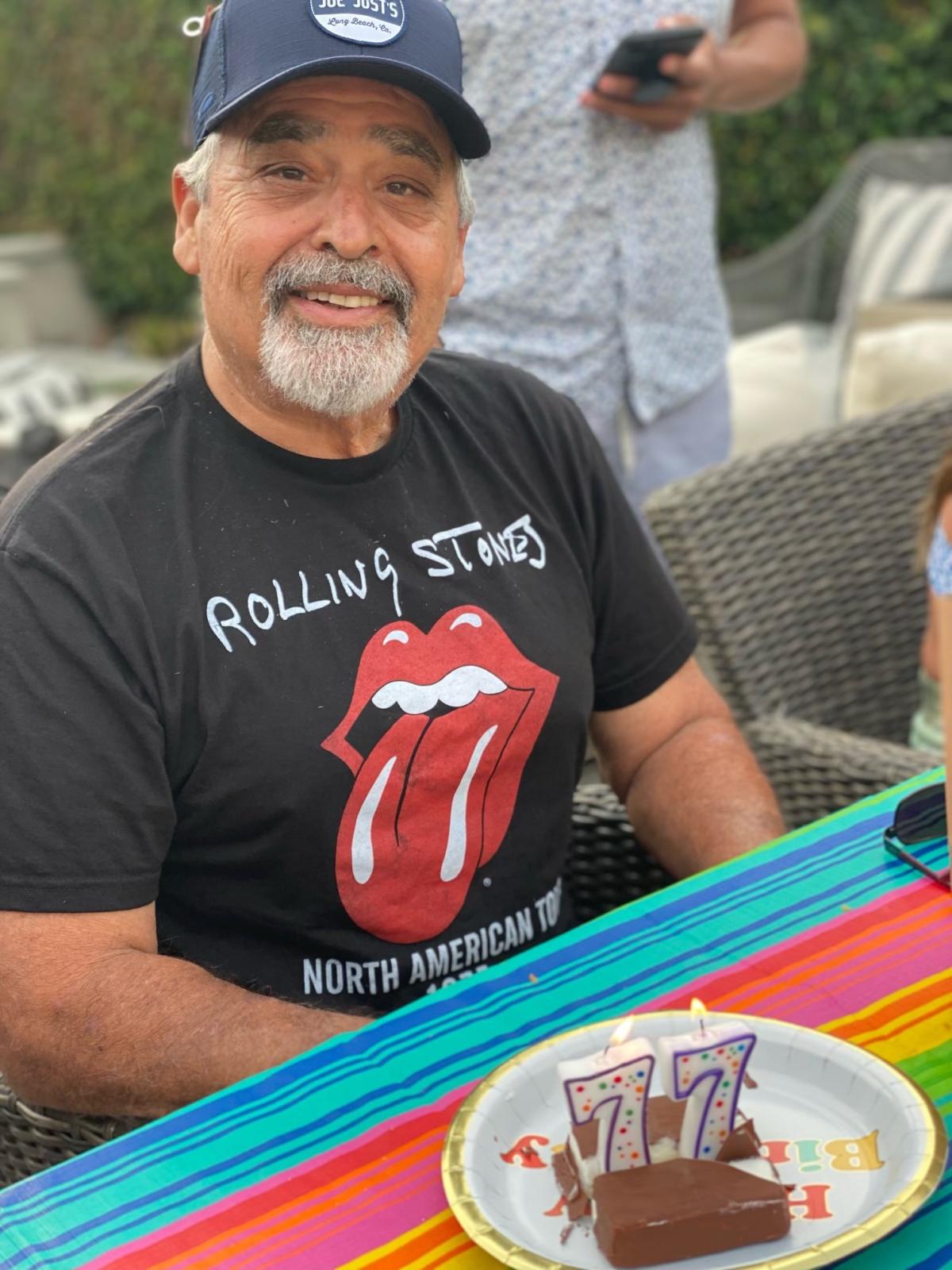 Long Beach-native Donald Olmstead and Nilesh Vora, M.D., medical director of the MemorialCare Todd Cancer Institute at Long Beach Medical Center, have more than just a patient-doctor relationship. They have a history that spans decades. Dr. Vora went to high school with Donald’s daughter, Dana. Through the years, the two classmates kept in touch, and to this day, Dr. Vora and Dana live on the same street. In 2016, when Donald started experiencing pain in his neck and severe fatigue, Dana suggested her father reach out to Dr. Vora.
Long Beach-native Donald Olmstead and Nilesh Vora, M.D., medical director of the MemorialCare Todd Cancer Institute at Long Beach Medical Center, have more than just a patient-doctor relationship. They have a history that spans decades. Dr. Vora went to high school with Donald’s daughter, Dana. Through the years, the two classmates kept in touch, and to this day, Dr. Vora and Dana live on the same street. In 2016, when Donald started experiencing pain in his neck and severe fatigue, Dana suggested her father reach out to Dr. Vora.
“I could barely stay awake at my grandson’s basketball games. I was always so tired. It wasn’t normal,” said Donald. “My daughter and I knew we could turn to Nilesh, and he got me in to evaluate what was wrong.”
An extensive work led to a diagnosis: Dr. Vora diagnosed Donald with stage III Hodgkin’s lymphoma, a cancer that starts in white blood cells called lymphocytes, which are part of the body’s immune system. Hodgkin’s lymphoma most often starts in lymph nodes in the body. Donald had impacted lymph nodes above and below his diaphragm.
Dr. Vora recommended that Donald undergo chemotherapy. After completing six cycles of chemotherapy over the course of six months, Donald’s tests showed no evidence of disease. Dr. Vora attributes Donald’s treatment and support of his family to his success in overcoming his cancer diagnosis. Donald would add, it was Dr. Vora’s excellent care and commitment that helped him overcome Hodgkin’s lymphoma.
But, little did Donald know he would need Dr. Vora’s life-saving skills once more, three years later.
In March 2020, Donald was at the park with his grandson. Dr. Vora happened to be there with his children as well. Dr. Vora noticed Donald’s arm was bruised very badly and suggested he have his labs checked, including a standard complete blood count. Labs showed a dangerously low platelet count and Dr. Vora suggested that Donald go straight to the emergency room. Donald went to MemorialCare Long Beach Medical Center. Tests had found that Donald had dangerously low levels of platelets — the cells that help blood clot. A normal platelet count ranges from 150,000 to 450,000 platelets per microliter of blood and Donald had 1,000 platelets per microliter of blood.
Dr. Vora took on Donald’s case, as he had done before, and after an extensive workup, he shared with Donald that he had a blood disorder called Immune thrombocytopenia (ITP), a disorder that can lead to platelets destruction and subsequently, easy or excessive bruising and bleeding.
“Donald ended up spending three weeks in the hospital. We gave him steroids, infusions of intravenous immunoglobulin, and medication called Nplate®. Initially, nothing seemed to be working to raise his platelet levels and we feared he may have to have a splenectomy, meaning his spleen would be removed,” said Dr. Vora. “If the spleen is removed, the platelets can remain in the blood stream. Splenectomies can be used to treat ITP, but of course you have the risk and complications associated with a major surgery.”
Just a few days before Donald was expected to undergo a splenectomy, Dr. Vora wanted to look further into his patient’s blood smear. He worked alongside the pathologists, and it was evident that there was the emergence of more platelets. He suspected the Nplate® shot was working to provide more platelets, and called off the surgery. Slowly but surely, Donald’s blood platelet counts continued to rise to safe levels, and eventually he was able to be discharged from the hospital.
“I’m so glad we didn’t end up doing surgery on Donald, because a splenectomy can leave you with a compromised immune system,” stated Dr. Vora. “He would have been at risk for infection, and as we know, in the Spring of 2020 with the COVID-19 virus running rampant and no vaccine available, it would have been a very scary situation.”
Through 2020 and 2021, Donald continued to receive dosages of Nplate®. Every week, his platelet count was checked, and based on his results, the dosage of Nplate® was adjusted. Donald says his platelet count has been in normal range since January 2022 and he has not needed any additional medications since then.
“I owe my life to Nilesh. He saved my life not once, but twice,” said Donald. “He is dedicated to patients like myself, and he never gives up on us.”